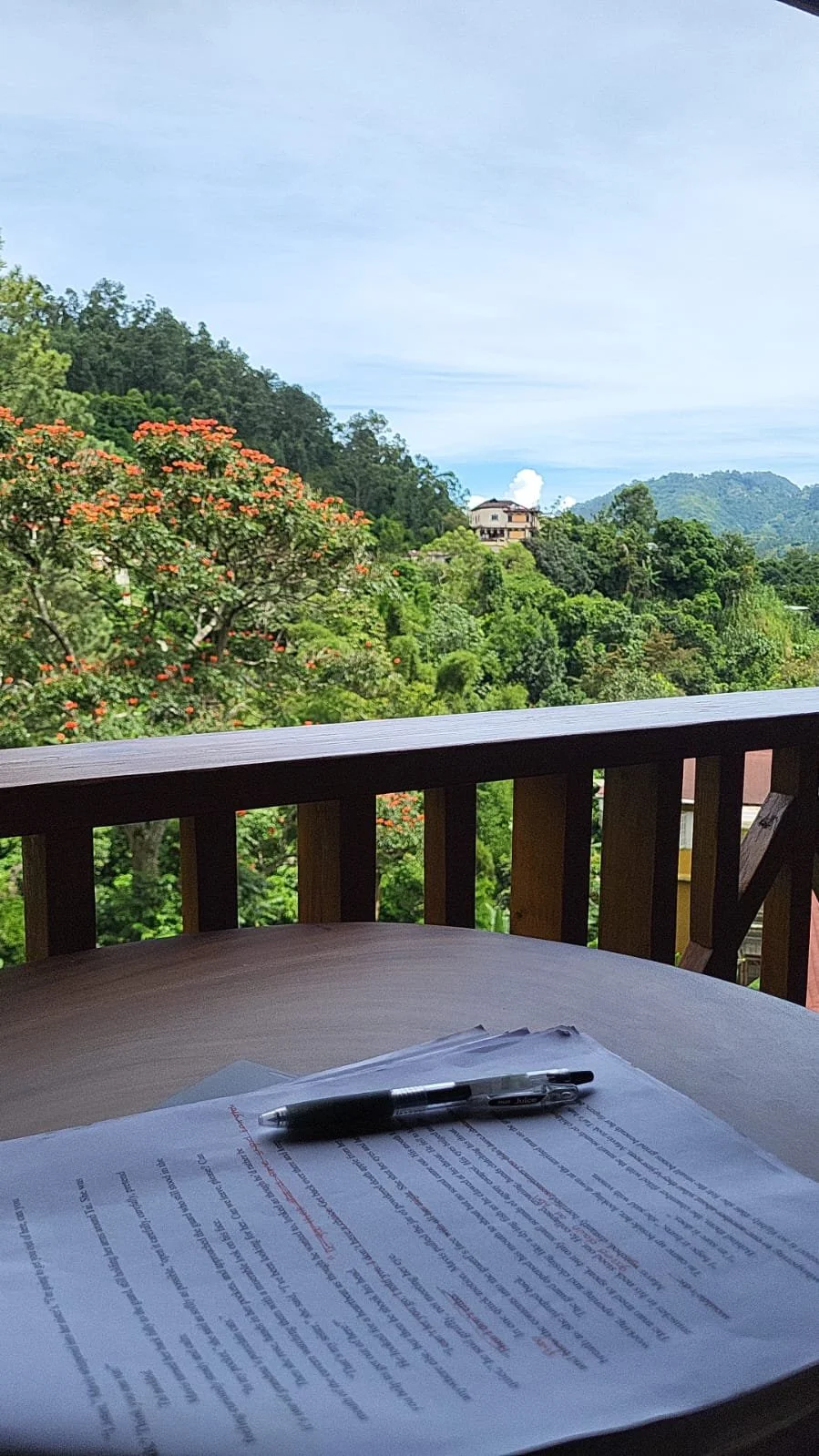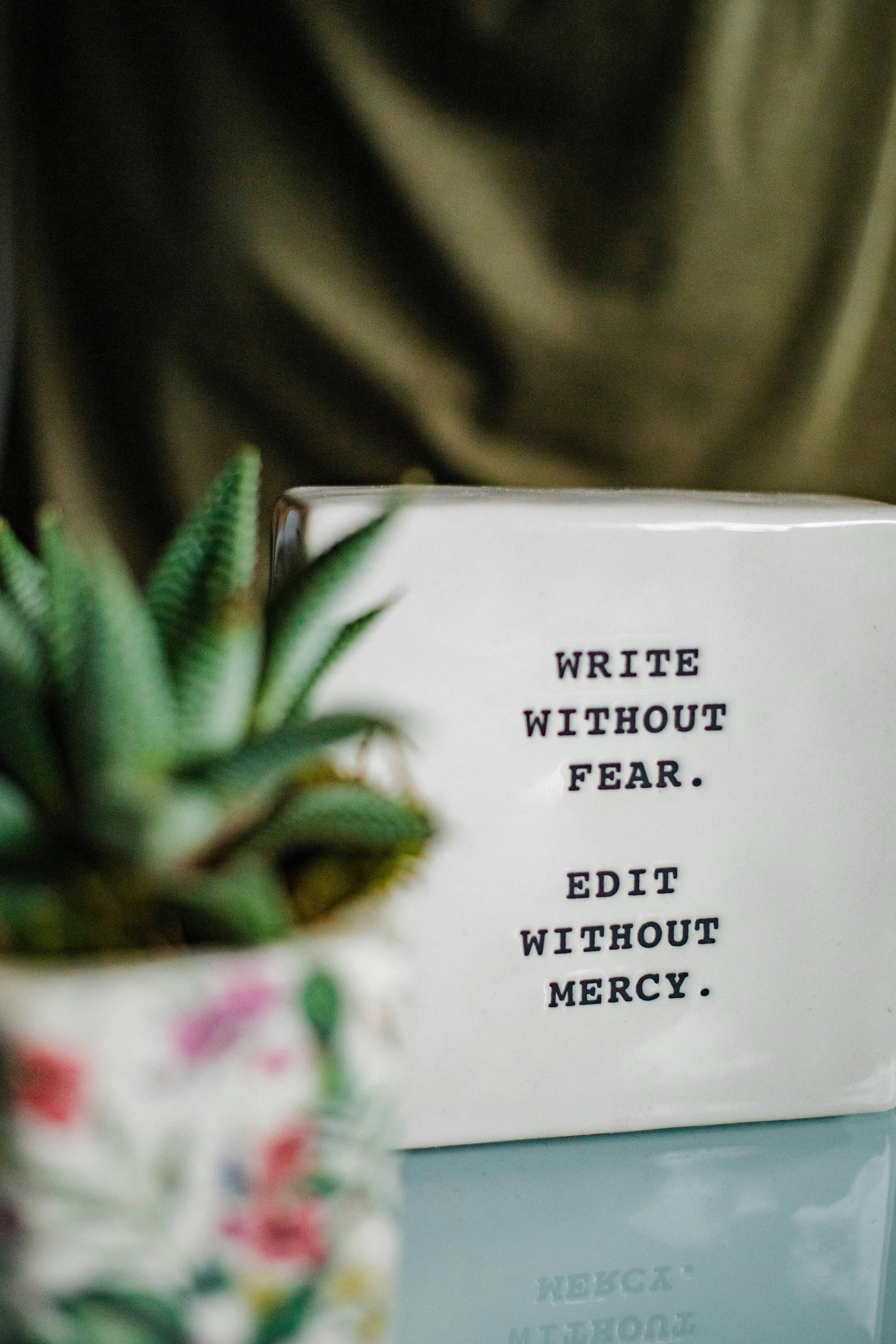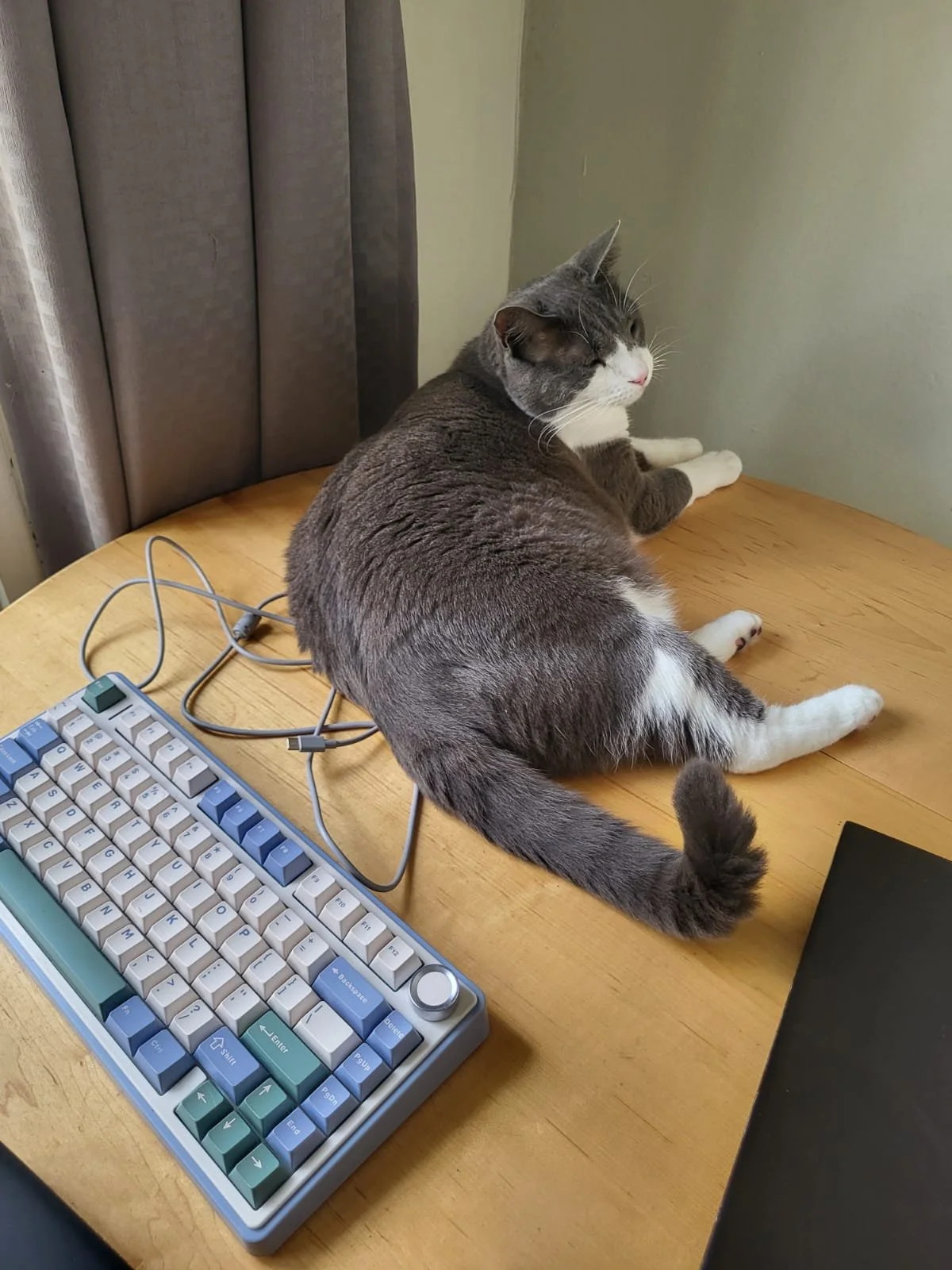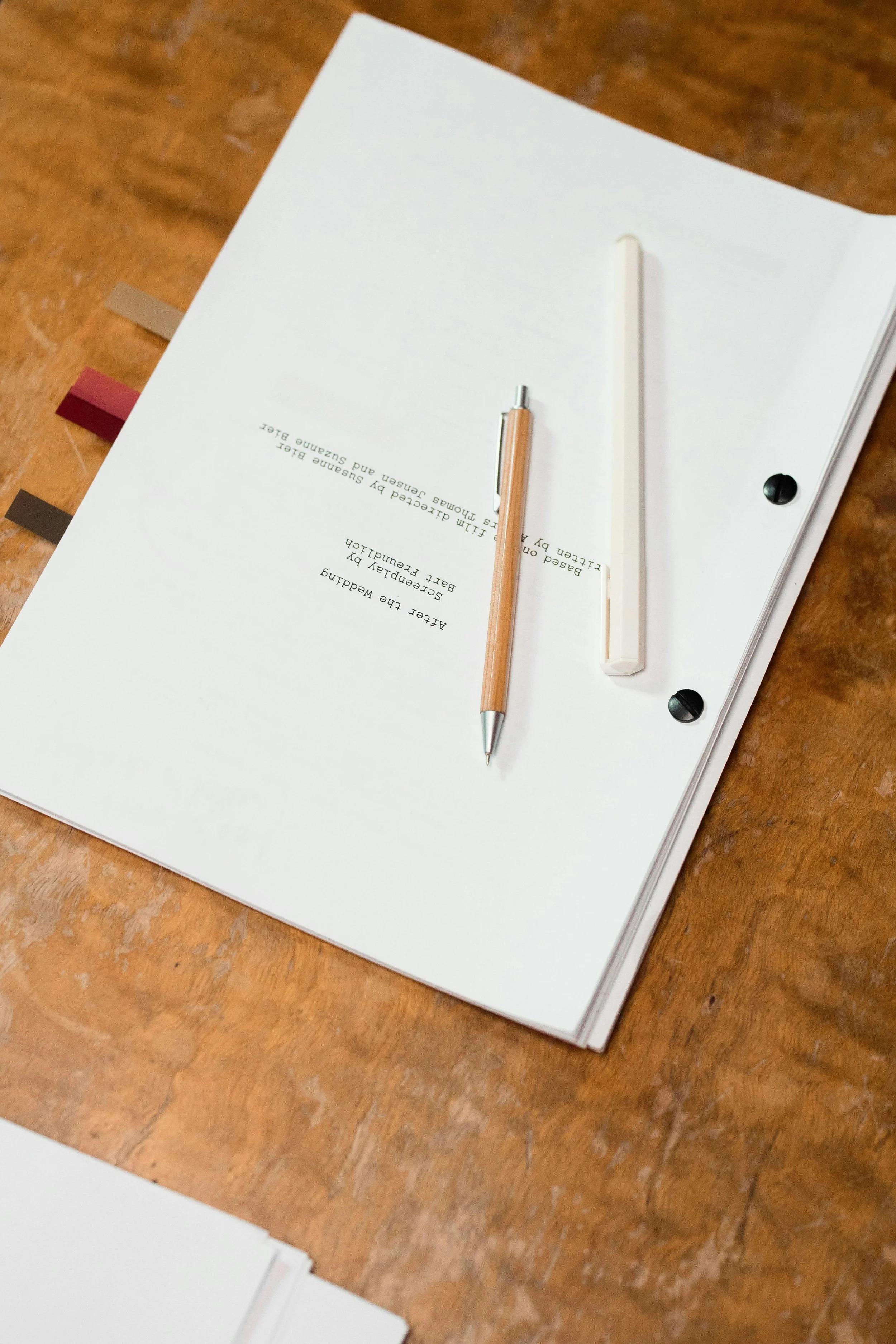Things I Learned Writing a Novel (that May Never Get Published)
I recently finished writing the third draft of my fantasy novel. The ideas first began percolating in early 2023 when I was dealing with the fresh grief of losing one of my pets. Losing a pet is extremely painful and we need to normalise talking about that grief, but I digress. This isn’t the first time I’ve tried writing a book, but it is the first time I’ve ever completed a story of this length and didn’t give up when all the doubts and repeated existential crises set in. And I’ve learned a few things during the process.
Writing at a cafe in the mountains.
Breakdowns are perfectly normal
Yes. Crying, wanting to toss the computer out, and whining about your story being the worst thing anyone has ever written, is completely normal. Writers across genres and disciplines are pretty often convinced that their work is utter trash. But those moments don’t mean they stop writing, they just whine, bribe themselves with ice cream or alcohol and keep putting words on the page.
I cackled one night reading the acknowledgement section of a T Kingfisher book where she thanked her husband. She said that with everything she writes there comes a time when she loses all confidence and makes him read what she’s written to decide if it’s shaming her ancestors or not.
If someone who’s published—and whose writing I enjoy—has those moments, then my panicked gibbering about being the worst writer ever no longer seemed so strange.
Imposter syndrome is real, and writers tend to be a highly self-critical bunch. So, if you’re working on something now and you’re convinced it’s terrible (I’m not going to lie, it could actually be terrible) keep going. Have your breakdown, struggle with your plot, doubt everything, give up for a day or two or three and go down a skincare review rabbit-hole on YouTube which is oddly specific, I know. Then open your document again and write few words or edit a line, tweak a scene, re-visit your outline…get back at it because the only thing worse than thinking your story is bad, is never finishing it.
Photo by hannah grace on Unsplash
There’s no right or wrong way to work
Use Save the Cat Writes a Novel!
Use the three-act structure to plan!
Outline everything before you start writing!
Make character sheets detailing all your characters!
Maps!
Do all the things!
You can do all the things and use all the software if you want—more power to you. But there’s no one way to plan, write or finish writing a novel. I read books about outlining and structure and how to plan your story from A to B detailing every stop in-between and where all the bathrooms are. Outlining is great, it’s a roadmap; too often I’ve started stories and stopped because I had no idea where I was going but I’m not a detailed outliner. And that’s okay. I thought I had to do things a certain way even when they weren’t working for me. We all have to find what works for us as individuals and know that not everything will. I can take a little pinch from Save the Cat and fold it into the broad strokes of the three-act structure. I can outline vaguely, write a bit, then go back and reverse engineer my outline. I can take a pinch from here, and a smidge from there and make my own writing recipe. I can write out my plot on notecards or use software with arrows and images. Meeting authors and hearing their wildly different processes helped me accept that I need to forge my own way of working and not stick to prescriptivist advice. It’s art, not paint-by-numbers.
Writing is an art but publishing is a business (and it’s difficult AF)
Something that continues to crack me up.
Person: What are you doing?
Me: Writing a book
Person: Cool! So, when is it coming out?
Me: Maybe never?
I’ve been wanting to be a published author since I was a teenager, but that doesn’t mean I knew anything about what it took to be published. As a Bocas Lit Fest Fellow, I had access to seminars with industry professionals including two senior editors at ‘Big Five’ imprints. If you don’t know, Big Five stands for the major publishing houses that pretty much own the market, think Penguin and Harper Collins. Those sessions really opened my eyes to how difficult it is to get traditionally published, how long it takes, and how much work goes into even getting your little toe in the door. If you want to be published by a major publishing house, you need a literary agent. To get a literary agent you need to prepare a query package which is essentially marketing material for your book and where it sits. Why? Because we live in a capitalist world and agents are looking for work that they can sell. They earn only when their clients sell. Getting a literary agent typically takes months of sending out queries and getting rejected. And even after you get an agent, there’s no guarantee that a publisher will ever acquire your book, because editors are also looking for books they think will sell and they might not think yours will.
Why do I want to do this again? I ask myself the question every other day.
There’s a ton of useful information out there on querying and the whole process of getting published. I recommend Alyssa Matesic on YouTube, Jane Friedman’s guide to query letters and PubTips over on Reddit.
Because cats force you to take breaks.
Breaks are essential
I’m guilty of beating myself up if I take a break from writing, I feel like I’m wasting time. But you actually need to waste time, sometimes. My mentor told me she believes in having one day off a week, and she takes a few months away from her first draft once it’s complete so she can come back to it with fresh eyes. Creating a story out of nothing takes a heck of a lot of energy and your brain can and will burn out. And when you’ve been deep in a story for weeks or months at a time, it gets hard to see it clearly. Taking a break doesn’t only mean big breaks between drafts. Some people work well writing every day. I don’t. I need a day or two off a week. It’s okay to not write every day, no matter how much you see the opposite advice on the internet.
You might also feel like a car hit you after you’ve finished a significant chunk of writing.
When I completed my third draft, I was a vegetable for at least three days, just watching YouTube and eating junk. I checked in with an author friend I met this year—my vegetative state, normal, totally normal.
Don’t be afraid to take breaks, not just with writing, with any creative work. You need it and your work will be better for it.
The books you read have been edited a million times
Any published book has gone through the author’s self-edits, then multiple edits with their agent, then more rounds of edits with their editor, then a copyeditor, then a proofreader. Your draft, no matter how hard you try to polish it, is never going to compare, so don’t feel too bad about it.
I don’t know if this book will ever be published and I’m not completely okay with that idea, but that’s the reality. If this one doesn’t make it, there’s the next one and the next one. The ultimate lesson I’ve learned is perseverance is key. Read a lot in your genre and outside of it, study what you like and what you don’t, and just keep on writing.



